Greatest Nobel Prize winners
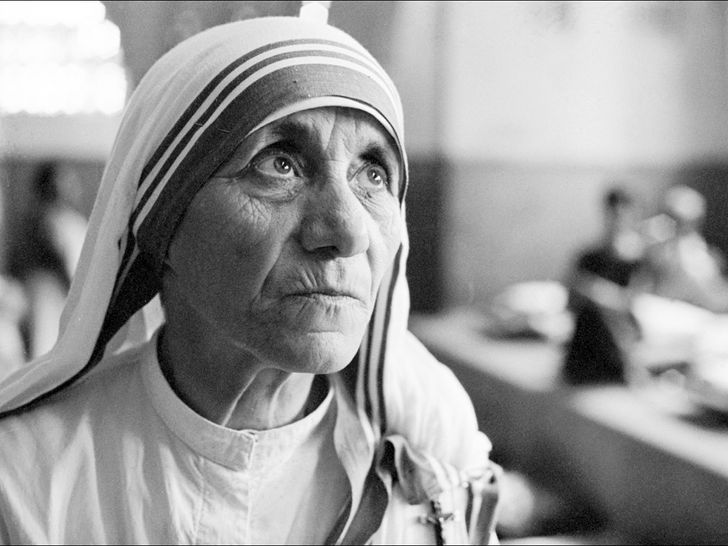
The 7 winners of the All-Time Nobel Prize Einstein Albert. Who will start this list better than the best-known scientist in history?
Posted On April 30th, 2021
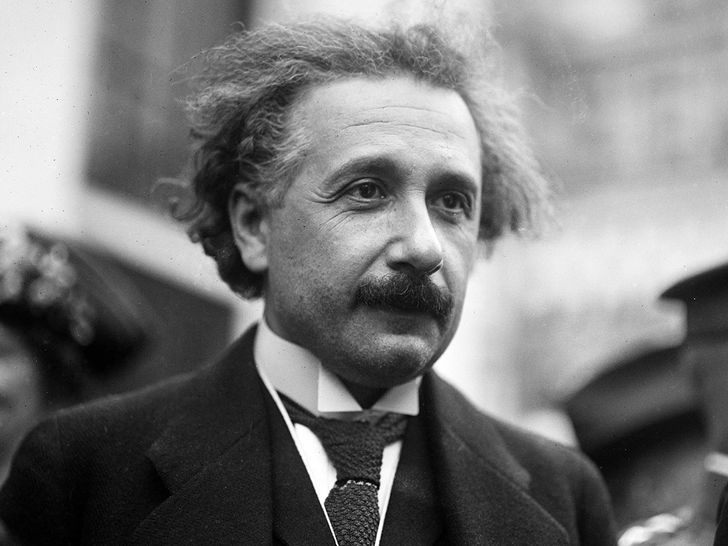
Albert Einstein
Albert Einstein was a theoretical physicist of German origin who is generally regarded as one of the greatest physicists of all time. Einstein is best known for discovering the theory of relativity, but he has made significant contributions to the theory of quantum mechanics. In 1921, he was awarded the Nobel Prize in Physics for his description of the photoelectric effect. Einstein is widely regarded as the most influential scientist of the twentieth century.
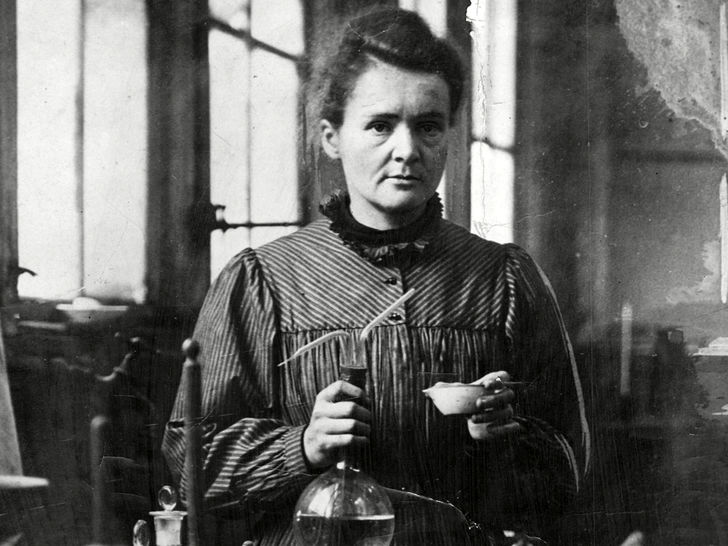
Marie Curie & Co.
Marie Curie, née Maria Sklodowska, was born on November 7, 1867, in Warsaw, the daughter of a secondary-school teacher. She obtained a general education in local schools as well as some science training from her father. She became interested in a student revolutionary group and decided to leave Warsaw, which was then ruled by Russia, for Cracow, which was ruled by Austria at the time. In 1891, she moved to Paris to pursue her studies at the Sorbonne, where she earned Licentiates in Physics and Mathematical Sciences. In 1894, she met Pierre Curie, Professor at the School of Physics, and the following year they married. She replaced her husband as Head of the Physics Laboratory at the Sorbonne, received her Doctor of Science degree in 1903, and after the tragic death of Pierre Curie in 1906, she became the first woman to hold the rank of Professor of General Physics in the Faculty of Sciences. She was also appointed Director of the Curie Laboratory at the University of Paris' Radium Institute, which was established in 1914.
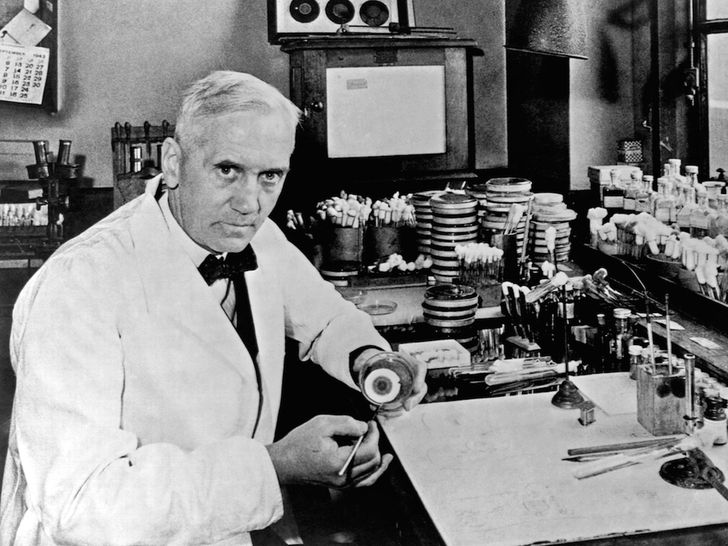
Sir Alexander Fleming & Co.
Alexander Fleming was a Scottish physician-scientist best known for developing penicillin. The easy discovery and use of the antibiotic agent saved millions of lives, earning Fleming the 1945 Nobel Prize in Physiology/Medicine, along with Howard Florey and Ernst Chain, who devised methods for large-scale isolation and the development of penicillin.
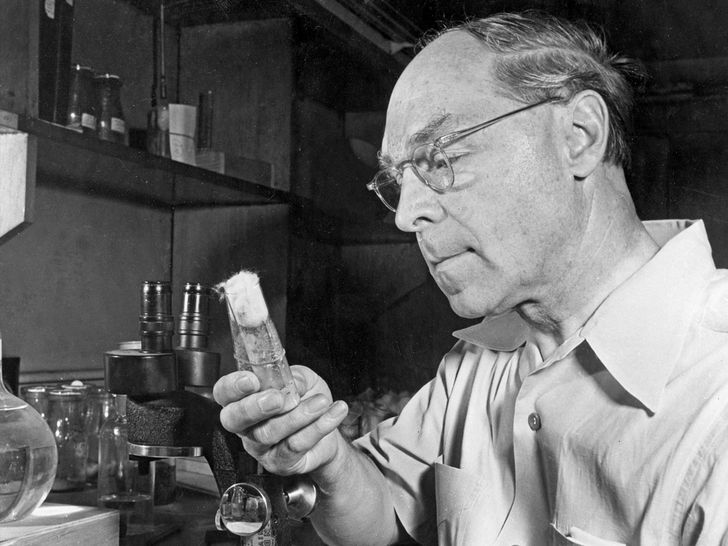
Hermann Muller
American geneticists best known for demonstrating that X-rays striking the genes and chromosomes of living tissue can trigger mutations and hereditary changes. His identification of exogenous gene mutations had far-reaching implications, and he received the Nobel Prize in Physiology or Medicine in 1946.
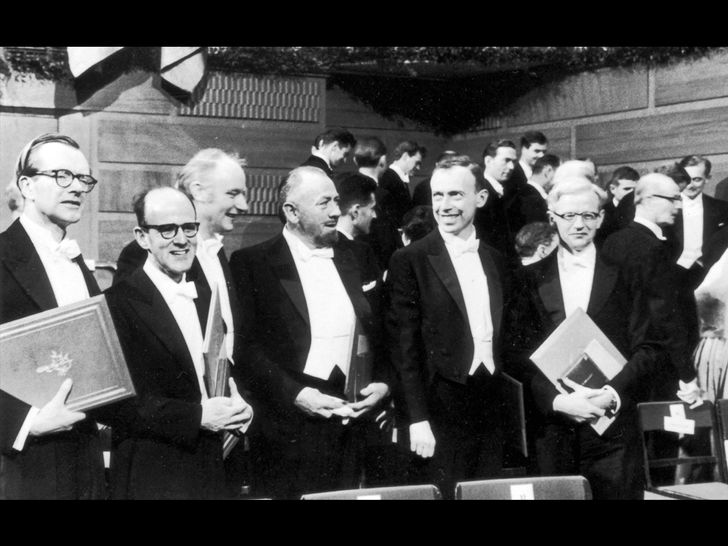
Watson, Crick & Wilkins
Francis Harry Compton Crick, James Dewey Watson, and Maurice Hugh Frederick Wilkins shared the Nobel Prize in Physiology or Medicine in 1962 for "discoveries concerning the molecular structure of nucleic acids and its importance for knowledge transmission in living material.
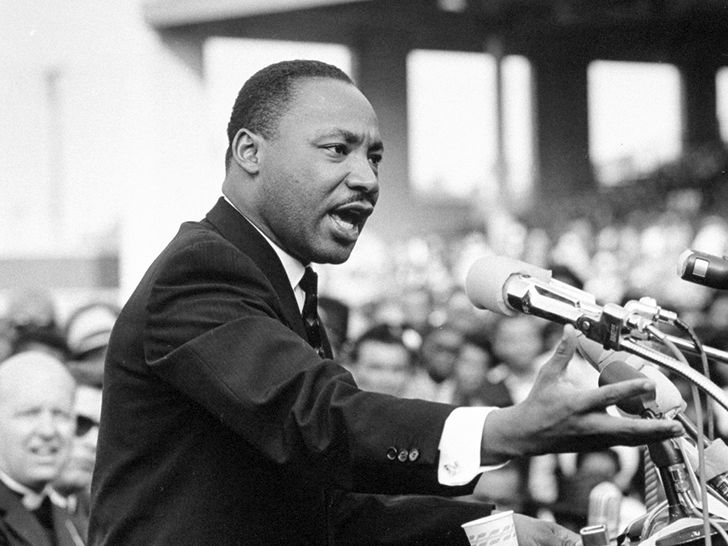
MLK, Jr.
Martin Luther King, Jr., an African American civil rights activist, receives the Nobel Peace Prize for his peaceful opposition to racial prejudice in America. The Georgia-born minister was the youngest recipient of the award, at 35 years old. Martin Luther King hoped that all Americans would be judged on their personal qualities rather than the color of their skin. In April 1968, he was assassinated by a white supremacist. He had won the Nobel Peace Prize four years before for his nonviolent anti-racism movement.
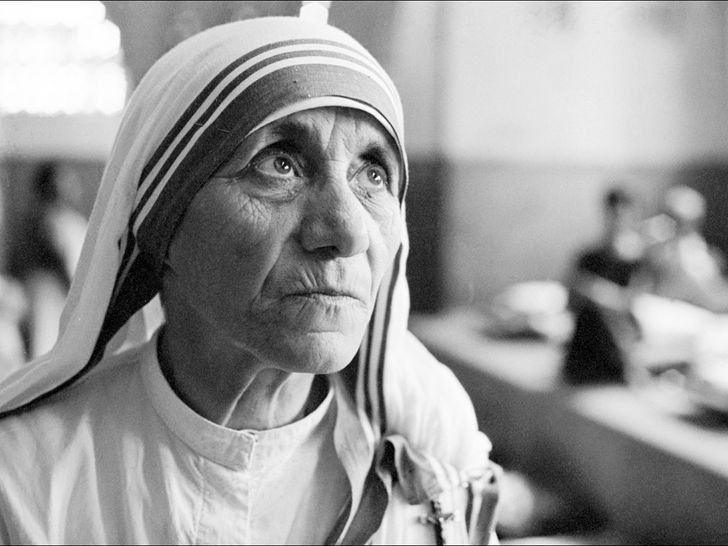
Mother Teresa
Mother Teresa left her teaching position at a Roman Catholic girls' school in Calcutta thirty years ago to devote her life to working among the poorest of the poor in the city's slums. In recent years, the Roman Catholic order of which she is now the head has expanded its operations to include a variety of other Indian cities and other parts of the world. The Norwegian Nobel Committee recognized Mother Teresa's role in bringing relief to suffering humanity by bestowing the prize. , the world has focused on the plight of children and refugees. These are the very categories for which Mother Teresa has worked so selflessly for many years.

